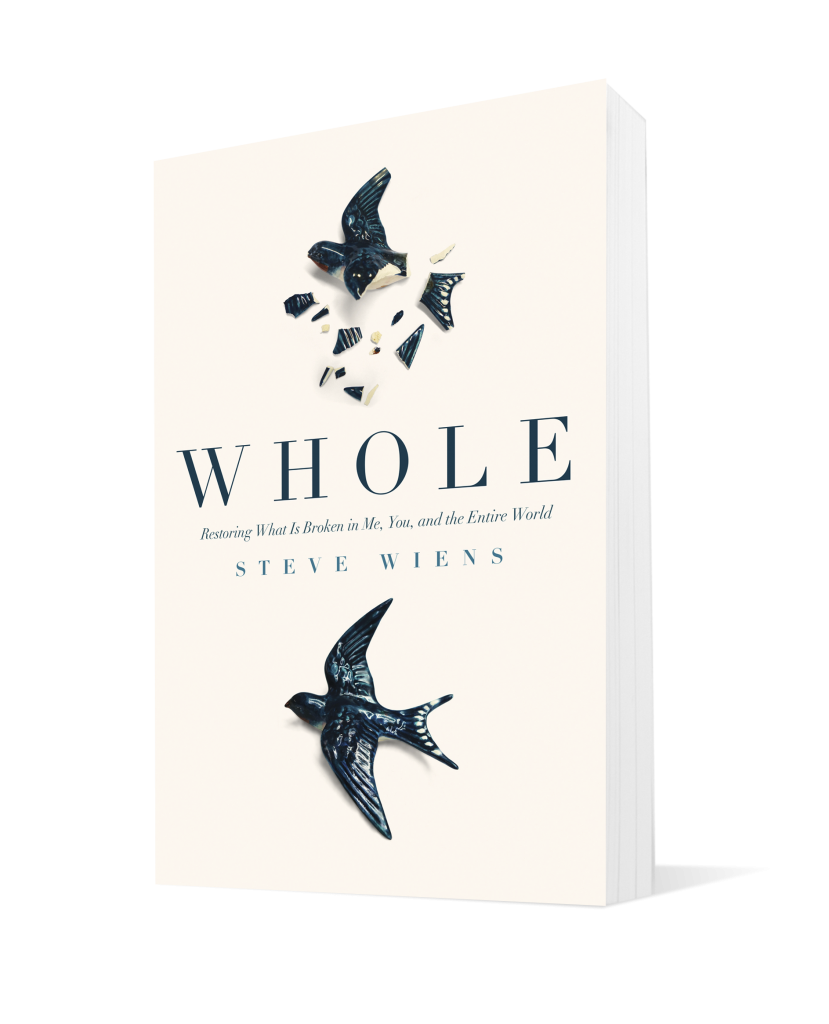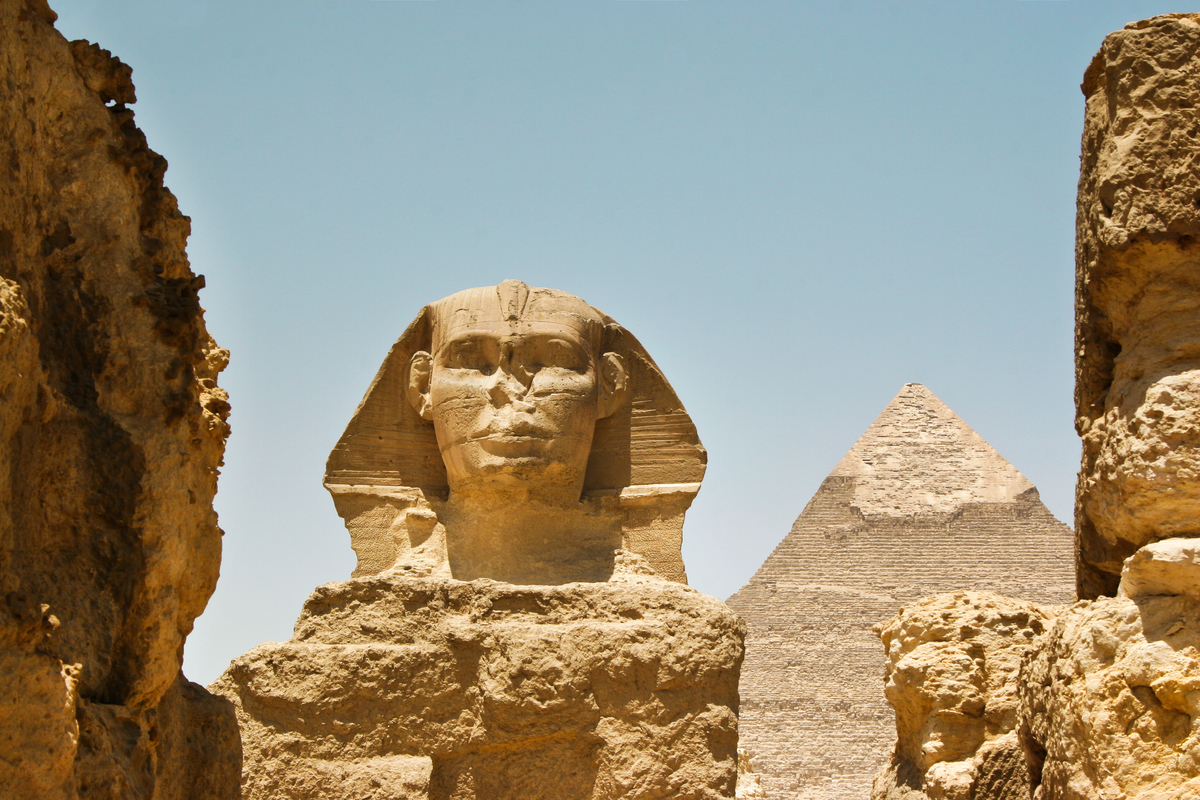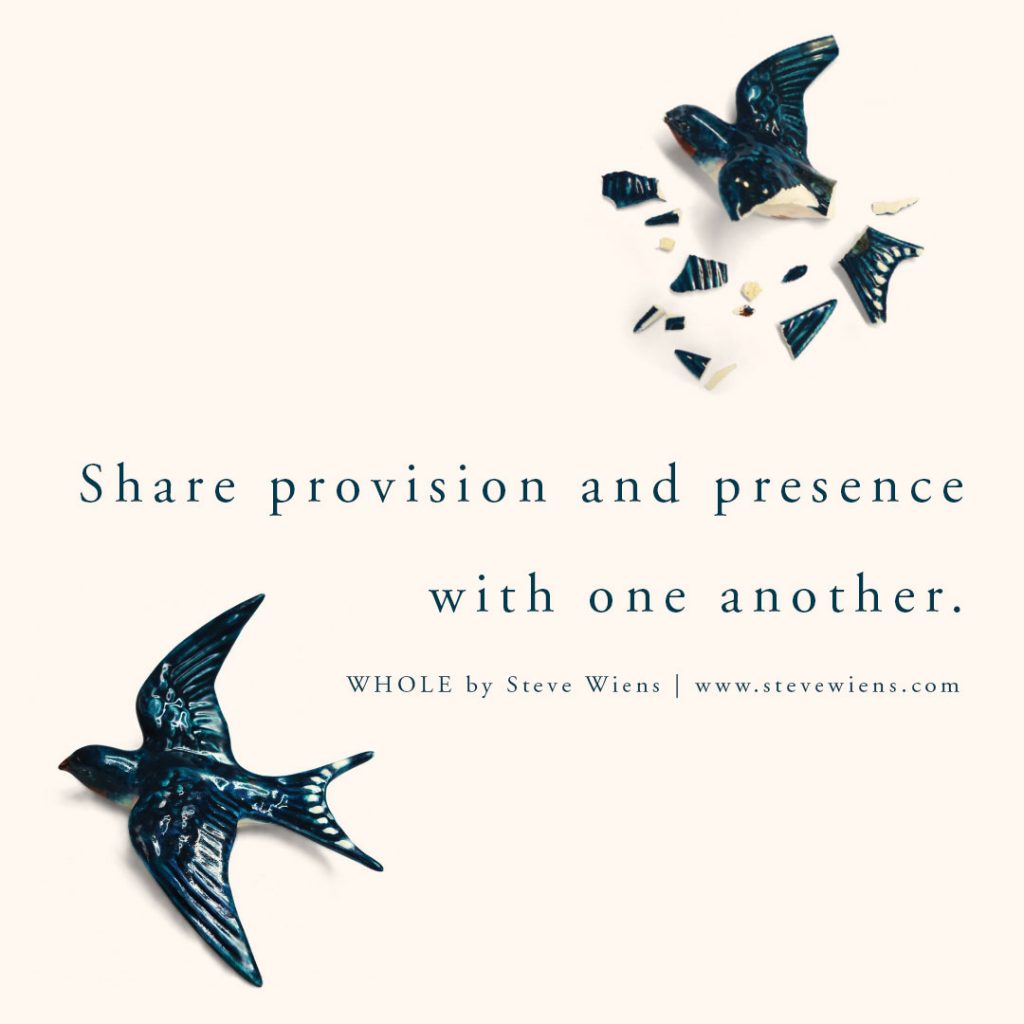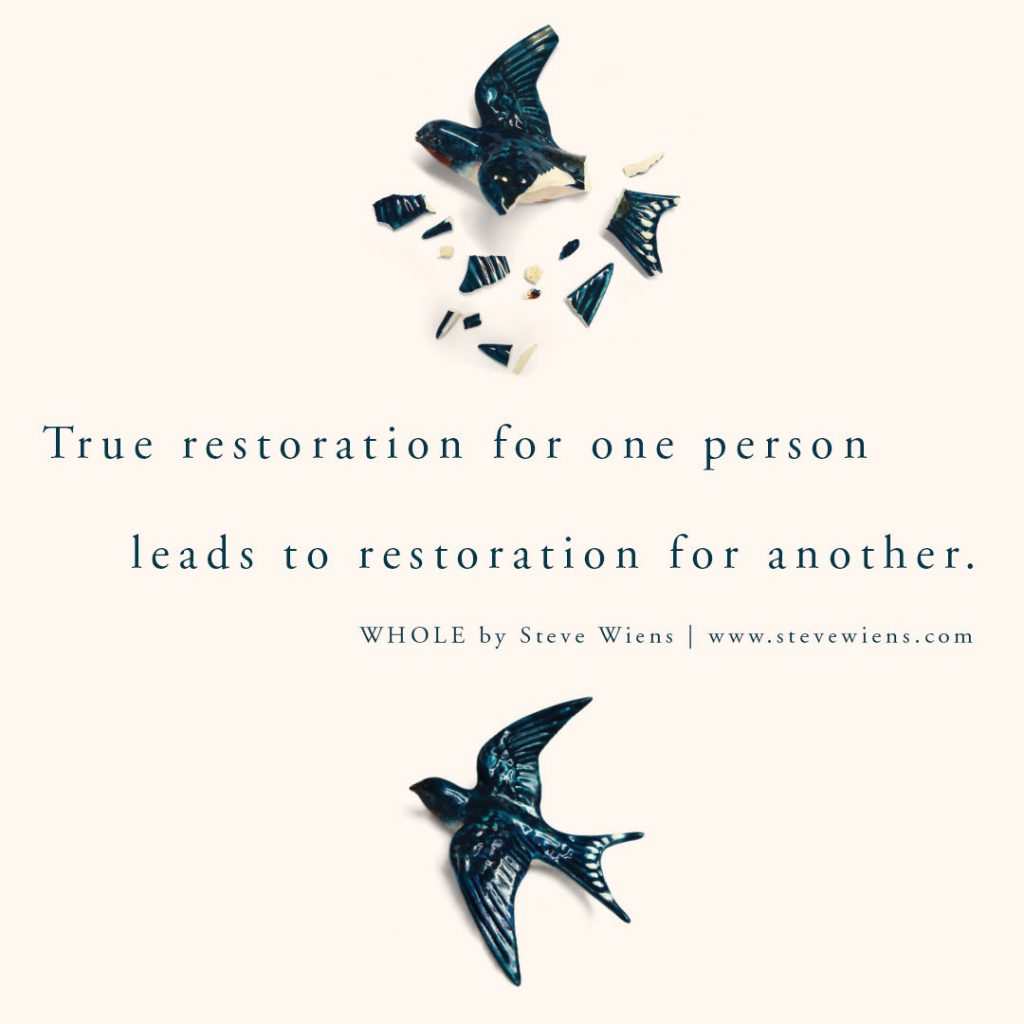The Hebrew language is best understood as describing a people in action, moving from here to there. Genesis is all about movement: out of the Garden, out of Harran, out of Canaan, and finally into Egypt.
Many scholars see Genesis (which means “beginning”) as the prequel to the real story of the Hebrew people, which starts in Exodus. Exodus opens by describing a people who are not moving at all. They’re stuck as slaves in Egypt; they’re not going anywhere, and they haven’t been going anywhere for four hundred years. They spend their days making bricks to build monuments for gods they don’t know or believe in. Over and over again, they groan in their slavery and cry out to God for deliverance and relief (see Exodus 2:23).
The Hebrew language uses a rigid economy of words to convey a kaleidoscope of meaning. These words convey meaning and destiny, transcending time, looping backward and forward, sewing us all together in a fabric of shared story.
If you want to understand how Hebrew words are used in the Scriptures, you need to know that they all start with a parent root word, which then has children and adopted children. Root words do a lot of heavy lifting. They flex and expand; they morph and adapt to describe many different sides of reality. A root can be a verb or a noun. In English, it’s straightforward: A noun expresses a person, place, or thing, while a verb expresses action. In Hebrew, it’s less straightforward: A verb is a word for the action of a person, place, or thing; and a noun is a word for a person, place, or thing in action.
Let’s take the root word matsor. It’s a person, place, or thing whose action is to hinder, limit, or restrain something or someone else. Matsor keeps people stuck where they don’t want to be.
Matsor can describe anything that traps you and limits your freedom. It’s anything that attempts to restrain or hinder you.
Matsor may be the relationship in which you feel marginalized and dehumanized.
… the alcohol you consume to numb your anger or alleviate your boredom.
… the religious dogma you stubbornly cling to, even though it’s driving you away from every relationship that matters to you.
… the smartphone that you grab any time there’s even one second of downtime.
… the job that demands more hours from you than is healthy to give.
Egypt is of course a physical place with a people and a history, but it’s also a state of being. The word for “Egypt” in Hebrew is Mitsrayim, a child word from the root word matsor. Mitsrayim means “narrow.” Mitsrayim represents anything that enslaves you or fragments you, trapping you in a narrow place. Egypt is narrow topographically, but it also represents the experience of being in a narrow place spiritually.
Ever been there?
“Oh no,” Dee said, sitting across the table from me at Breaking Bread Café in North Minneapolis.
“What?” I asked cautiously. I had been talking to her about the Exodus as a broad theological concept that I was interested in writing and preaching about.
“I always get nervous when white pastors use the Exodus narrative and act as though they’re the children of Israel instead of the Egyptians.”
Sometimes your sister sees to your shalom by helping you see something that you didn’t see.
Dee and I are both church planters in our denomination who are learning what it means to see to the shalom of Minneapolis. Dee is one of the best preachers I’ve ever heard. She’s prophetic, wise, funny, passionate, and she’s over six feet tall. She’s a powerful presence, and she’s becoming a good friend.
And Dee is black.
When Dee spoke at our church three weeks after a police officer shot and killed Jamar Clark, a twenty-four-year-old black man who lived in North Minneapolis, she invited our mostly white church to lament. She preached about Hanani, one of Nehemiah’s brothers in the biblical account of Nehemiah. Hanani went to see the city of Jerusalem, which had been destroyed. Hanani came back to Nehemiah and told him how it really was with the children of Israel and with the city of Jerusalem itself.
It takes great courage for someone to inhabit a place that has been destroyed and then to go back and tell others, who weren’t there, how things really are. Sometimes people who haven’t been there don’t want to hear about it. Sometimes they work very hard to keep you quiet.
Hanani said, “The exile survivors who are left there are in bad shape. Conditions are appalling. The wall of Jerusalem is still rubble; the city gates are still cinders” (Nehemiah 1:3, msg).
When Nehemiah heard Hanani’s report, he sat down and wept. He mourned for days. He fasted and prayed to God.
Dee lives in North Minneapolis, where the shooting occurred. And when she sat on a small wooden stool on the large stage at our church that day, she told us that she was Hanani, coming from North Minneapolis to tell us how it was with the people of North Minneapolis and the city itself.
She told us about the prayers and the singing. She told us about hope rising. She also told us about the fear and the rage that her neighbors were feeling. She asked us to lament, to grieve. She asked us to mourn and fast and pray. She asked us to see and hear what is happening.
She gave us a great gift, though an uncomfortable and risky one. She helped us understand the matsor that our black brothers and sisters in North Minneapolis feel every day.
I know it’s uncomfortable to read the Exodus story and consider the possibility that you’re an Egyptian. Stay with me. We can’t talk about restoring the entire world if we don’t talk about repenting of our part in breaking it.
Sometimes, seeing to the shalom of your brothers and sisters puts you in a position in which you need to realize that you have been part of the matsor that has kept them enslaved, even if you haven’t knowingly done anything to keep them enslaved. But Moses is a perfect candidate to lead us there.
Moses was a person with an identity crisis. Though he was Hebrew by nature, he was raised in an Egyptian household, with Egyptian values, from an infant until well into his adulthood. It’s why he thought he could see to the shalom of his brothers and sisters by murdering the Egyptian slave driver. When we don’t really know the life of someone who is enslaved, we tend to resort to answers that don’t really help. It took Moses forty years in the wilderness to take Egypt out of him.
If Egypt was in Moses, it’s possible that it’s also in me. Let’s stop for a second.
If you’re white like me and you’re being asked to put yourself in the position of the Egyptians in the Exodus narrative, what feelings rise up in you?
Maybe you’re tired of hearing about white privilege.
Maybe you see riots happening and are sickened by the violence that the media captures.
Maybe you feel guilty.
Maybe you feel defensive. You’re not a racist.
Maybe you want to go do something, now, to fix it, because you see that it isn’t right.
Maybe you’re afraid when you think of building relationships with people of color who might be angry with you because you are white.
Maybe you think it isn’t your battle, because it isn’t happening in your neighborhood.
I’ve had every one of those feelings, and I still do.
And yet, Dee is my sister. I’m her brother. By opening up to me and telling me that she gets nervous when white folks like me use the Exodus narrative as if they’re the children of Israel, she’s seeing to my shalom. Restoring what’s broken in me, you, and the entire world means that we have to change our definition of who our family is.
It gets especially interesting—and transformative—when we enter the Scriptures rather than just reading them.
You’re reading the story of Moses when you cheer for Moses and wonder why Pharaoh was so hard-hearted and didn’t just let those people go.

But you’ve entered the story of Moses when you realize that you’re afraid to go where God leads you, and you ask God to send someone else.
You’re reading the story of the children of Israel when you skip quickly over the fact that four hundred years is nearly twice as long as the United States of America has existed.
But you’ve entered the story of the children of Israel when you cry out in your own slavery and you hear nothing from God except silence for years and years.
I’m reading the story of Pharaoh when I wonder why he doesn’t just let God’s people go, especially after all those gruesome plagues.
But I’ve entered the story when I realize that I’m also Pharaoh. I sometimes resist God’s voice and God’s desire to restore the entire world. I sometimes act as if God only wants to restore me.
“Let my people go,” God sometimes says to me.
How will I answer?
Where will my answer take me?
What will I need to bring with me on that journey?
You’ve been reading from Whole: Restoring What’s Broken in Me, You, and the Entire World by Steve Wiens. For Christians who lament the brokenness in themselves, their neighbors, and the world around them, Whole offers a rallying cry to pursue wholeness together. Continue reading from Whole right now. Listen to Steve on his podcast This Good Word or check out his other book Beginnings: The First Seven Days of the Rest of Your Life



